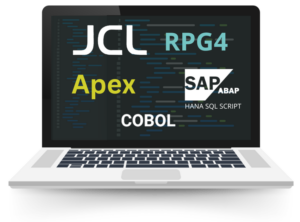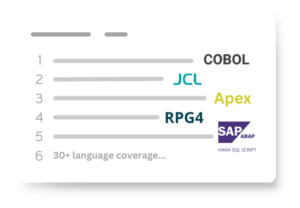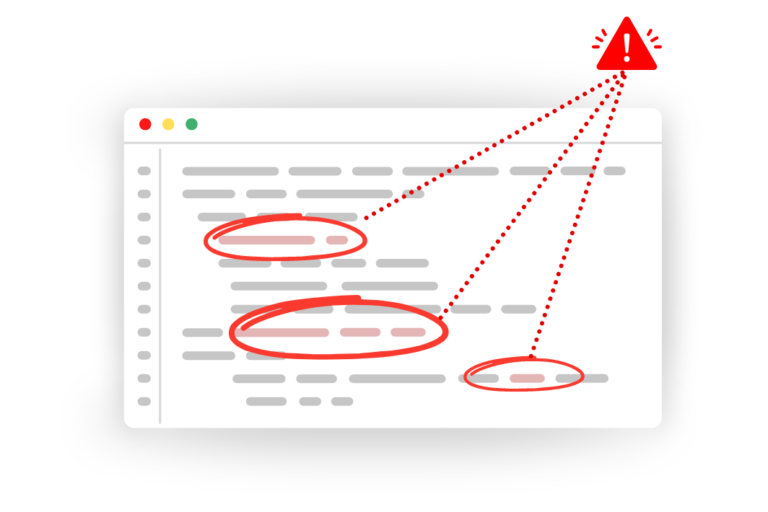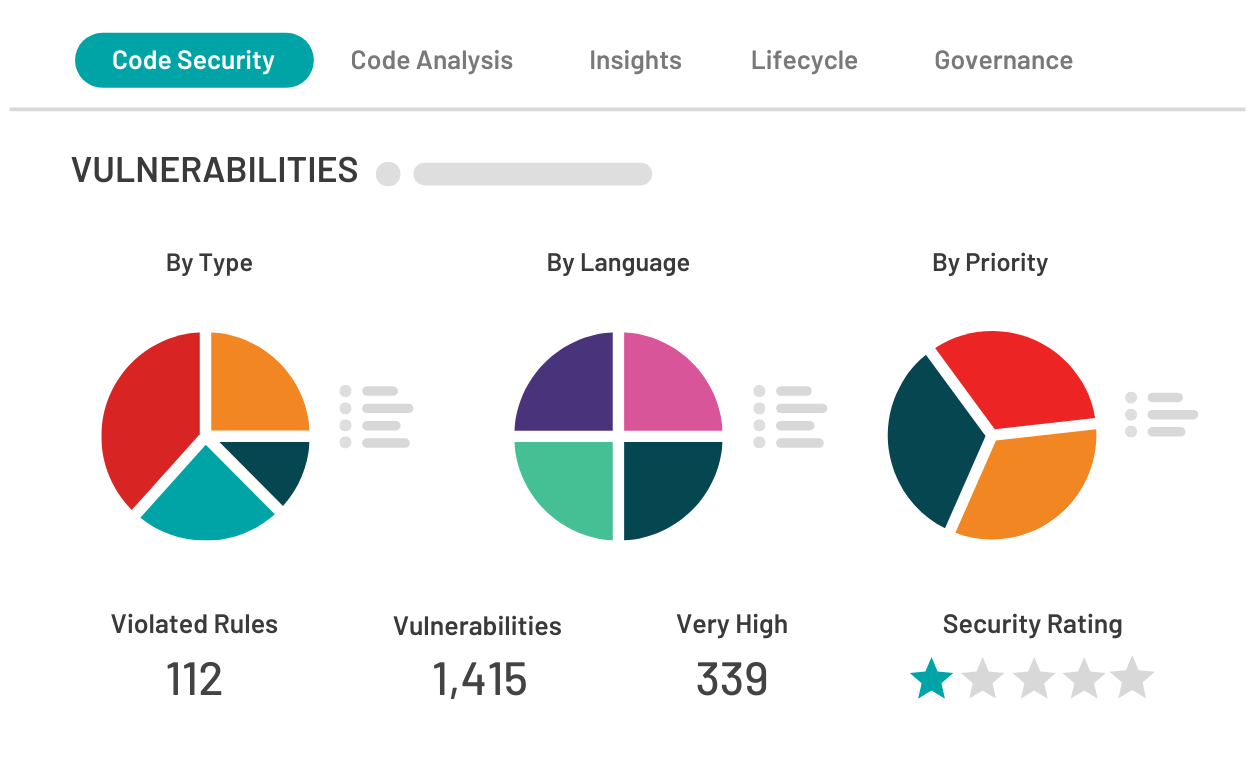

Even though many organizations and entities are now using newer programming languages, COBOL is still a popular language for developers within certain sectors. Likewise, job control language (JCL) is also a standby for those on legacy systems, especially within the public sphere.
However, the age and widespread use of both these languages makes them vulnerable to misuse and abuse during data breaches. These are the reasons you need COBOL code analysis tools.
Given COBOL’s origins in the 1950s, it easily qualifies as a legacy language. However, COBOL is also quite vulnerable. It warrants just as many security measures as any modern programming language, if not more. Here are the factors to consider when evaluating COBOL’s role within your security posture.
Because they are created by humans at their roots, every single programming language has opportunities for vulnerabilities. As legacy programming languages, COBOL and JCL are not exceptions.
The vulnerabilities that COBOL and JCL are subject to have the potential to compromise vital data within applications using them as languages and frameworks. While these frameworks are known for their extremely user-friendly designs, this benefit acts as a double-edged sword—because it’s equally easy for the enterprising hacker to leverage during an attack.

Given that COBOL is one of the coding languages of choice for banks, insurance companies, and government agencies. Many institutions prefer to maintain their applications that use COBOL rather than budget both funds and time to upgrade to more modern programming languages.
This poses a risk to users’ personal and financial information. Be it in a financial institution that houses an individual’s life savings and other liquid assets or a government agency that has access to the social security and permanent resident card numbers of everyone in the country, this code protects a virtual goldmine of sensitive data for attackers.

One of the negative consequences of continually using legacy coding languages like JCL and COBOL is that the amount of defective code they have spans decades. This leaves both languages vulnerable to larger security risks or data breaches without constant vigilance and patching.
While the overwhelming majority of COBOL code is not defective, between 0.5–0.7% of it does have some type of defect. Given that it’s a language that banks and government entities prefer, any number greater than zero could spell trouble and potentially cost millions of dollars in the event of a data breach.


Kiuwan is valuable for all types of source code analysis and makes an excellent COBOL and JCL analysis tool. Its cybersecurity solutions can analyze and identify security vulnerabilities by analyzing code statically—without executing the program. Kiuwan provides ways to assess security risks within COBOL codebases with nearly 300 predefined rules and customizable policies to assess the code.
Kiuwan Code Security is a static application security testing (SAST) tool that allows you to take a real-time, proactive approach to protecting your JCL and COBOL-based code. Kiuwan COBOL dialect coverage includes support for:
Kiuwan SAST provides detailed reports on the issues it identifies, such as severity and potential impact. It offers metrics that help users understand the security and quality of their code base. It can also be integrated into existing development workflows as part of the continuous integration and continuous deployment (CI/CD) process. It ensures that you can maintain security quality throughout the development lifecycle and customize analysis rules to fit their environment or security requirements.

With COBOL and across any programming language, there are multiple benefits to using security testing tools. Some of the other benefits of using these tools include:
✓ Easy license identification: As with other coding languages, using SAST to secure your code protects your user data and improves your application’s security posture overall.
✓ Increased application security: Kiuwan’s SAST tools for COBOL can protect your application against code injections, misconfigurations, control flow mismanagement, error mishandling, information leaks, and more. They provide action plans to identify issues based on your rule set to help minimize your product’s attack surface area.
✓ Proactive issue resolution: Our SAST tools make it easy to quickly identify the exact location of vulnerable lines of code, along with the data flow associated with each one. This allows you to find every potential issue in your fault code and remediate it before deployment.
✓ Automated processes: Kiuwan SAST automates the scanning and analysis process for your proprietary code, which reduces the effort your developers and security team need for manual checks.
Kiuwan’s software code analysis tools make it easy to secure your COBOL data and prevent security breaches within vulnerable applications and systems. Download the Security Guide for COBOL Developers to learn everything you need to know about COBOL security and protecting your application.